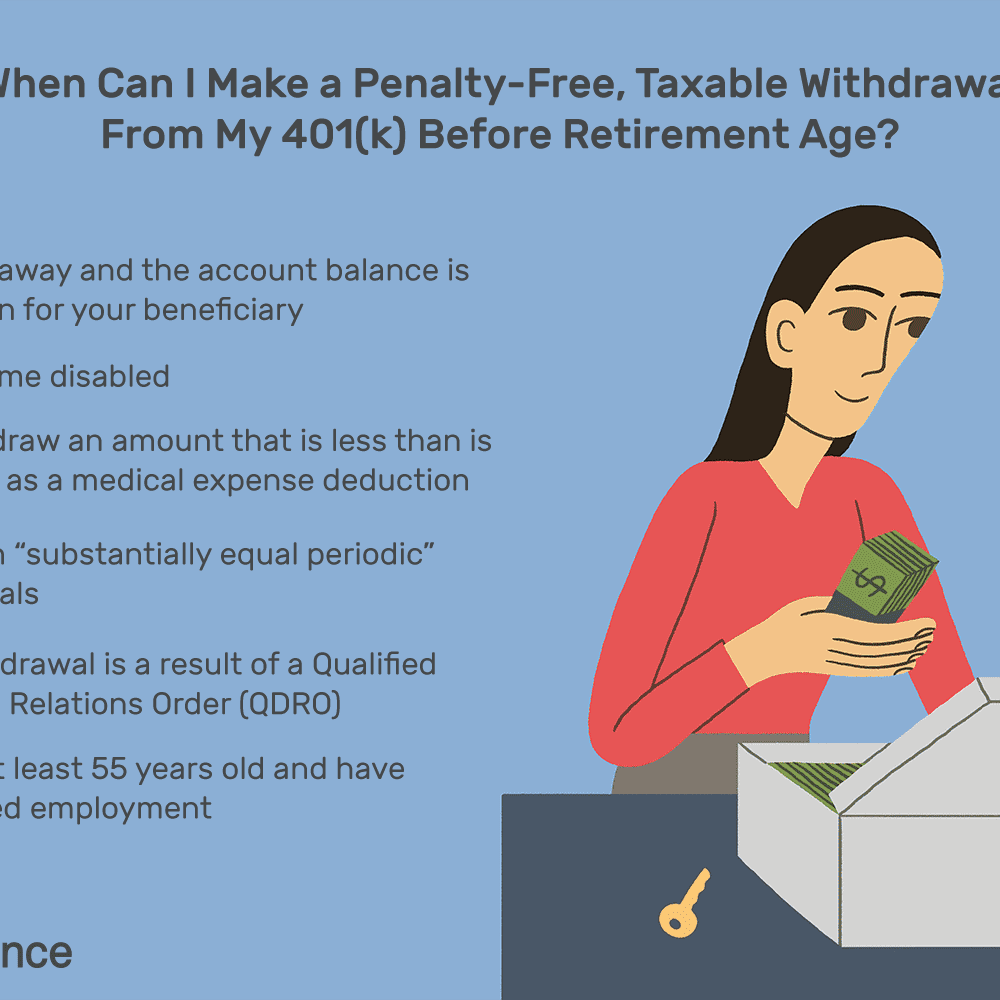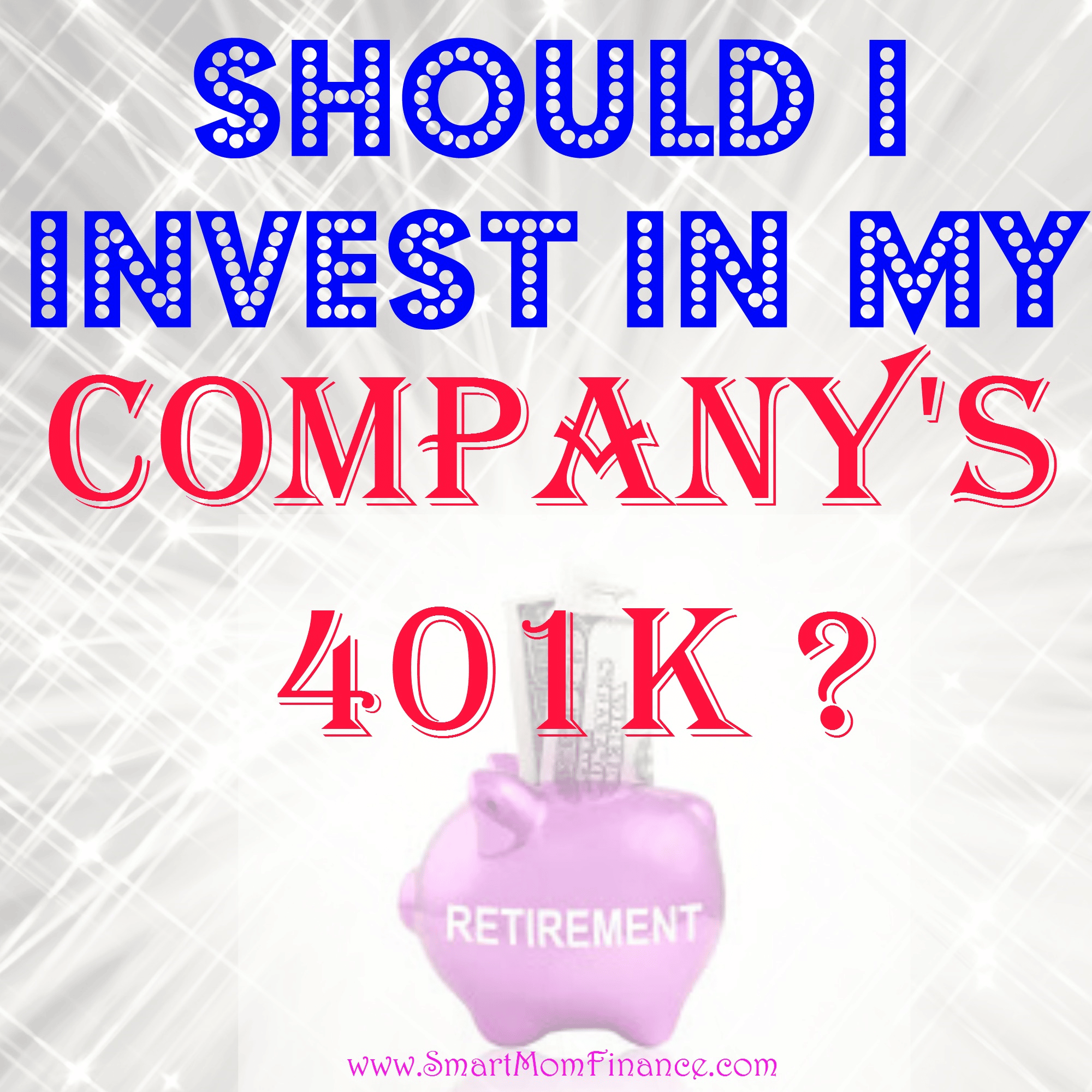What Is A Spousal Ira
Now listen up, married people, because this is important. Even if you or your spouse doesnt have an earned income, you can still have two Roth IRAs between both of you thanks to the spousal IRA. For most single-income families, fully funding two Roth IRAs will be enough to reach the goal of investing 15% of their income for retirement.
Transfer Condo To Self
The self-directed 41k rules do not allow for such a transaction because your LLC owns the existing condo. You and your LLC are deemed disqualified parties. Such transaction would violate the following prohibited transaction rule:
Sale, exchange, or leasing of property between a plan and a disqualified person.
The property is the condo the plan is the solo 401k plan the disqualified party is your LLC.
What Are The Benefits Of Managing My Own 401
More Control
The biggest benefit of managing your 401 is the additional amount of control you have over your own retirement account. People all over the country dislike the idea of funding their 401 accounts only to have little to no control over how their retirement will grow over time.
After selecting their fund allocations in the few options that are offered, there isnât really much else people can do within their 401. With a self-directed 401, you have complete control over how your money is invested and how it will grow for your future.
Potentially Better Investment Options
This goes hand in hand with having more control, but in a self-directed 401, you have access to any investment vessel that you like. Not only are you limited to very few options in a 401, within those broad categories you are even further limited.
Just within those main categories alone, there are endless funds on the market that you can invest in within a self-directed 401. Not would you just be limited to a general small cap fund, for example, but you could then go a layer deeper and pick a specific niche. Maybe you like a small cap innovation fund or solar energy fund. In a self-directed 401 youâd be able to choose whatever investment you like.
Ability to Beat the Market
Also Check: Can You Invest In The Dow
Can I Manage My Own 401k
David Bolton
Managing your own 401 account can be beneficial or disastrous depending on how you choose to invest, but it gives you complete control over your future.
Some 401 plans have more investment options than others, but most have a pretty limited selection of investment opportunities. That is why more and more people are starting to wonder whether they can manage their own 401 instead of being limited to the few available options. Although you can manage your 401 in some cases, youâll soon learn about whether or not you really should.
If your employer offers a self-directed 401 option, then yes you can manage your own 401 account. If they donât you will need to choose from the available investment options and rely on a fund manager or market index funds to manage your account.
Over years, weâve seen all different kinds of 401 plans as well as the different investment avenues that employers have offered along the way. Weâve dealt with actively managed 401 plans, passively managed plans, and also of course self-directed accounts. Everything you read here is from hands-on experience in the industry, so letâs dive right in!
Start Your Own Retirement Plan

When youre an employee, you can only use a 401 plan if your employer establishes a plan and youre eligible to contribute. All too often, thats not the case. But you still have options.
Ask for a 401: Your employer might be willing to set up a 401 they just havent done it yet. Start the conversation by asking why there isnt one, why you want one, and that there are potential tax benefits for employers. Explain that valuable employees like yourself would be even more valuable with excellent benefits. Offer to do some of the legwork required to get the plan up and running. In some cases, especially with small organizations, your employer simply doesnt have time to set up a plan. Cost is another factor companies and small nonprofits might be hesitant to pay plan costs . If cost is the primary concern, discuss less-expensive options like SIMPLE plans. Only time will tell if itll actually happen, but it never hurts to ask.
IRAs: If you dont have a 401, you may still be able to save in an individual retirement account , and you might even receive tax benefits similar to a 401. Unfortunately, the IRS sets maximum annual limits much lower for IRAs. Still, something is better than nothing. Evaluate traditional IRAs for potential pre-tax saving, and Roth IRAs for possible tax-free withdrawals . Another drawback of IRAs ) is that you may need to qualify to make contributions or receive a deduction. Speak with a tax expert before you do anything.
Also Check: How Much To Invest In Cryptocurrency To Become A Millionaire
Managing Your Retirement Funds
It’s important to start saving for retirement as soon as you begin earning income, even if you can’t afford to save that much at the beginning. The sooner you begin, the more you’ll accumulate, thanks to the miracle of compounding.
As your savings build, you may want to get the help of a financial advisor to determine the best way to apportion your funds. Some companies even offer free or low-cost retirement planning advice to clients. Robo-advisors such as Betterment and Wealthfront provide automated planning and portfolio building as a low-cost alternative to human financial advisors.
Can I Invest My 401 Myself
Holding more than $3.5 trillion in total assets, Americans have a large amount invested in 401 plans, which have become the main way that most people save for their retirement. With so much riding on your plan, you must make good decisions about how to invest the money in order to meet your financial goals. Fortunately, in most cases, you do have options for investing your 401 yourself.
Also Check: How To Invest In Austin Real Estate
What Is A 401k Plan In Canada
Although we dont have 401k plans in Canada we do have similar types of investments accounts. Registered Retirement Investment Accounts are the equivalent to a US 401k.
Similar to a 401k Canadians receive a tax deduction for RRSP contributions and the income and capital gains earned in the plan are considered tax deferred until money is withdrawn from the plan.
What Are The Roth Ira Requirements
To be eligible to fully contribute to a Roth IRA, you must:
-
Have an earned income.
-
Have whats called a modified adjusted gross income . But it has to be less than $198,000 for married couples filing jointly or $125,000 for single people.3
Now listen up, married people, because this is important. Even if you or your spouse doesnt have an earned income, you can still have two Roth IRAs between both of you with something called a spousal IRA, if your spouse has an earned income. For most folks, fully funding two Roth IRAs will be enough to reach the goal of investing 15% of their income for retirement.
Don’t Miss: Best Way To Raise Capital For Real Estate Investment
How To Open A Solo 401
You can open a solo 401 at most online brokers, though youll need an Employer Identification Number. The broker will provide a plan adoption agreement for you to complete, as well as an account application. Once youve done that, you can set up contributions. Youll have access to many of the investments offered by your broker, including mutual funds, index funds, exchange-traded funds, individual stocks and bonds.
If you want to make a contribution for this year, you must establish the plan by Dec. 31 and make your employee contribution by the end of the calendar year. You can typically make employer profit-sharing contributions until your tax-filing deadline for the tax year.
Note that once the plan gets rocking, it may require some additional paperwork the IRS requires an annual report on Form 5500-SF if your 401 plan has $250,000 or more in assets at the end of a given year.
If you need help managing the funds in your solo 401, robo-advisor Blooom will manage your 401 at your existing provider. If you want even more comprehensive financial help, you might opt for an online planning service. Companies such as Facet Wealth and Personal Capital offer low-cost access to human advisors and provide holistic guidance on your finances, including how to invest your 401.
Advice For Employees And Also Employers
A Roth 401 is a relatively recent alternative to a traditional 401 retirement plan, with different tax advantages to a 401 or traditional IRA account. Not all employers offer them, but it is worth investigating as a retirement vehicle option.
Also Check: Td Bank Heloc Investment Property
Roundabout Prohibited Transaction Question:
While the solo 401k investment rules allow for promissory note investments, this transaction would result in a roundabout prohibited transaction because the rules do not allow for a transaction that is prohibited to be done indirectly. In other words, while your brother is not a disqualified party from a solo 401k investment perspective, if he were to turn around and loan those borrowed funds or other funds to you, the IRS would view as you essentially processing a promissory note from your own solo 401k which is prohibited. Dont confuse this rule with the solo 401k participant loan rules, though. To learn more about the difference between a promissory note investment and a solo 401k participant loan.
Do I Need A 401 Solo Plan

For sole proprietorship businesses, solo 401 plans are very effective ways to set aside and grow a large amount of money for retirement. If youre a small business owner and dont yet have a retirement plan set up, a solo 401 is an excellent way to save for retirement.
If you happen to need to hire employees at some time during your businesss lifetime, youll need to be sure to adjust the plan to include them equally or create criteria to define benefit-eligible employees and create retirement plans for them.
Read Also: Jp Morgan 401k Investment Options
Understanding Your Investment Account Options
Now that youve made the right choice in deciding to save for retirement, make sure you are investing that money wisely.
The lineup of retirement accounts is a giant bowl of alphabet soup: 401s, 403s, 457s, I.R.A.s, Roth I.R.A.s, Solo 401s and all the rest. They came into existence over the decades for specific reasons, designed to help people who couldnt get all the benefits of the other accounts. But the result is a system that leaves many confused.
The first thing you need to know is that your account options will depend in large part on where and how you work.
Dont Miss: How Do I Open A 401k
Can You Contribute To 401k With After Tax Money
Your employer may allow you to make after-tax contributions to your 401 plan. After-tax 401 contributions don’t secure you an immediate tax deduction as ordinary contributions do. But they allow you to contribute beyond the annual 401 contribution limit to your 401 account. Plus, the earnings grow tax-free.
Read Also: What’s A Real Estate Investment Trust Reit
What’s So Great About 401 Accounts
A 401 is a popular type of employer-sponsored retirement plan that’s available to all employees 21 or older who have completed at least one year of service with the employer, usually defined as 1,000 work hours in a plan year. Some employers enable new employees to join right away, even if they haven’t met this criterion yet.
In 2021 you’re allowed to contribute up to $19,500 to a 401 or up to $26,000 if you’re 50 or older. In 2020, those amounts rise to $20,500 and $27,000. These limits are much higher than what you find with IRAs, and they enable you to set aside a fairly large sum annually.
Most 401s are tax deferred, so your contributions reduce your taxable income each year. You must pay taxes on your distributions in retirement, but you may be in a lower tax bracket by then, in which case you would save money. Some employers also offer Roth 401s. You pay taxes on contributions to these accounts now, but you’ll get tax-free withdrawals in retirement.
Some employers also match a portion of their employees’ 401 contributions, which can make the task of saving for retirement a little easier. Each company has its own rules about matching, so consult with your HR department to learn how yours works.
Contribution Limits In A One
The business owner wears two hats in a 401 plan: employee and employer. Contributions can be made to the plan in both capacities. The owner can contribute both:
- Elective deferrals up to 100% of compensation up to the annual contribution limit:
- $20,500 in 2022 , or $27,000 in 2022 if age 50 or over plus
If youve exceeded the limit for elective deferrals in your 401 plan, find out how to correct this mistake.
Total contributions to a participants account, not counting catch-up contributions for those age 50 and over, cannot exceed $61,000 for 2022 .
Example: Ben, age 51, earned $50,000 in W-2 wages from his S Corporation in 2020. He deferred $19,500 in regular elective deferrals plus $6,500 in catch-up contributions to the 401 plan. His business contributed 25% of his compensation to the plan, $12,500. Total contributions to the plan for 2020 were $38,500. This is the maximum that can be contributed to the plan for Ben for 2019.
A business owner who is also employed by a second company and participating in its 401 plan should bear in mind that his limits on elective deferrals are by person, not by plan. He must consider the limit for all elective deferrals he makes during a year.
You May Like: Socially Responsible Real Estate Investing
What Options Do 401 Plans Have
While some 401 plans do allow you to manage your own account â more on that later â the majority of them do not. And most 401 plans between companies all around the country have similar investment options for their employees to choose from. While there will of course be some differences from company to company, it is common for many of the same investment options to pop up no matter who youâre working for.
In most 401 plans, youâll have the option of investing into five main asset categories. These categories include U.S. large cap, U.S. small cap, international markets, emerging markets, and bond allocations. Large and small cap funds refer to the market capitalization of the companies within. For example, the S& P 500 Index comprises the 500 largest companies in the United States. So a fund that mimics the S& P 500 would be an example of a large cap fund.
While these options are good for most average investors, there isnât a whole lot of variety in what you can invest in. And you wonât really have any chance of beating the overall market as you work towards retirement. So before we get into managing your own account, letâs learn about how 401 accounts are usually managed.
How To Start A Private 401k Plan Without An Employer
Many investors have trouble opening a 401k for their retirement because they are not familiar with private 401k plans. As an investor struggling to open a 401k, you are worried that you will not have the necessary finances for retirement. Fortunately, you can open a 401k in a non-traditional way. The private 401k functions similarly to traditional plans that many employers offer employees. You can invest in your future even when the traditional route is out of reach. There are also safe investments for seniors that retired investors can benefit from. If you are not yet retired and want to save for retirement, continue reading to learn how to start a private 401k plan.
Read Also: Where Can You Invest In Penny Stocks
Types Of 401 Investments
The most common type of investment choice offered by a 401 plan is the mutual fund. Mutual funds can offer built-in diversification and professional management, and can be designed to meet a wide variety of investment objectives. Be mindful that investing in a mutual fund involves certain risks, including the possibility that you may lose money.
Your 401 plan may offer other types of investments. Some of the more common ones include:
About 401 Investing In Down Markets

You might naturally feel nervous about continuing to invest while share prices are falling. There are two protective measures investors take during bear markets. They are:
You may already be taking these actions in your 401. If you’re younger than 50, you shouldn’t be withdrawing money for at least five years, or possibly 10. And your investment menu may not even offer speculative fund options.
Still, it’s smart to check in on your investment selections. Make sure most of your contribution is allocated to a large-cap or S& P 500 index fund.
Also Check: 30 Year Investment Mortgage Rates